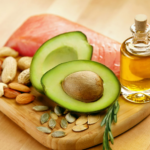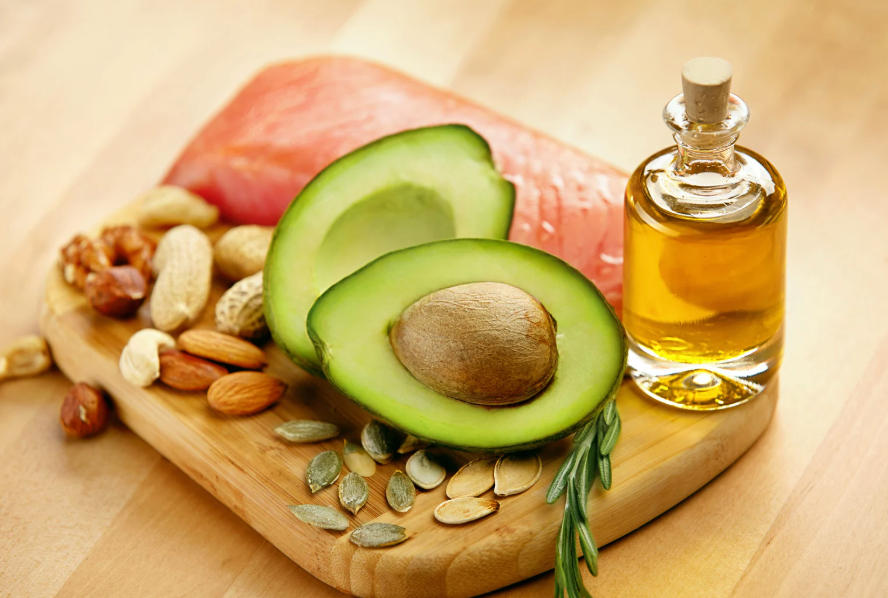March 21 marks National Healthy Fats Day, a timely reminder that not all fats are created equal. While fats have long been vilified in popular diets, experts emphasize that the right kinds of fats are essential for overall health. Healthy fats help fuel the brain, regulate hormones, and support heart health—making them an indispensable part of a balanced diet.
“Healthy fats play a crucial role in everything from brain function to hormone regulation,” says Jaya Jaya Myra, a former immunologist turned mind-body wellness expert. “Incorporating good fats into your diet isn’t just beneficial—it’s necessary for long-term wellness.” According to Jaya Jaya Myra, understanding the impact food has on your mood and overall wellbeing is part of what she calls “conscious character development”: basically, making conscious decisions to improve your life in a healthy way.
Understanding the Role of Healthy Fats
For decades, dietary fat was often blamed for weight gain and health issues. However, research has consistently shown that the type of fat consumed is more important than the total amount. While trans fats and excessive saturated fats from processed foods can contribute to health risks, unsaturated fats and omega-3s offer a range of benefits.
These healthy fats contribute to cell function, help absorb fat-soluble vitamins (A, D, E, and K), and even play a role in reducing inflammation, which is linked to chronic diseases like heart disease and diabetes.
Five Essential Healthy Fats to Include in Your Diet
So, what should you be eating to reap the benefits of healthy fats? Jaya Jaya Myra shares her top picks for powerhouse fats that should be a staple in your diet:
1. Avocados
Avocados are a nutritional powerhouse, packed with heart-healthy monounsaturated fats, fiber, and essential vitamins. These creamy fruits support cholesterol levels, reduce inflammation, and keep you feeling full longer. They can be added to salads, spread on toast, or blended into smoothies for a rich, satisfying texture.
2. Nuts & Seeds
Almonds, walnuts, chia seeds, and flaxseeds are excellent sources of omega-3 fatty acids, which are crucial for brain health. They also provide a good dose of plant-based protein and fiber, making them an ideal snack. Sprinkle them on oatmeal, mix them into yogurt, or enjoy a handful on their own for a satisfying crunch.
3. Fatty Fish
Salmon, mackerel, and sardines are among the best sources of omega-3 fatty acids, which are known to support heart and brain function. These fats help reduce inflammation and may lower the risk of heart disease. Experts recommend consuming fatty fish at least twice a week to maintain optimal health.
4. Olive Oil
A staple of the Mediterranean diet, olive oil is renowned for its anti-inflammatory properties and heart-healthy benefits. Extra virgin olive oil contains powerful antioxidants that protect against oxidative stress, a key factor in aging and disease. Use it to dress salads, drizzle over roasted vegetables, or as a cooking oil alternative to butter.
5. Eggs
Eggs are often misunderstood when it comes to fat content, but they are actually an excellent source of protein and healthy fats. The yolk is particularly rich in choline, a nutrient that supports brain function and metabolism. Whether scrambled, boiled, or poached, eggs make for a nutritious addition to any meal.
Overcoming the Fear of Fat
Despite growing awareness about the benefits of healthy fats, some people still hesitate to include them in their diets due to lingering misconceptions. However, Jaya Jaya Myra emphasizes that it’s all about making smart choices.
“Many people still fear fat, but the key is choosing the right kinds of fats,” she says. “When you swap out processed, trans fats for whole, nutrient-dense sources, you’re giving your body the fuel it truly needs. Even beyond this, if you don’t consume fats in your diet, the body won’t learn to process them and burn them, making weight loss even harder.”
Instead of avoiding fat altogether, nutritionists encourage people to focus on balance. Incorporating a variety of healthy fats—alongside lean proteins, complex carbohydrates, and fiber—creates a well-rounded diet that supports overall wellness.
Embracing a Healthier Lifestyle
National Healthy Fats Day serves as an opportunity to rethink dietary habits and make simple, yet impactful, changes. By incorporating more avocados, nuts, fatty fish, olive oil, and eggs into daily meals, individuals can support their heart, brain, and overall health.
In the long run, embracing healthy fats isn’t just about what’s on your plate—it’s about fostering a sustainable approach to nutrition that benefits the body and mind. So, on March 21 and beyond, let’s celebrate the power of good fats and make choices that promote long-term well-being.








